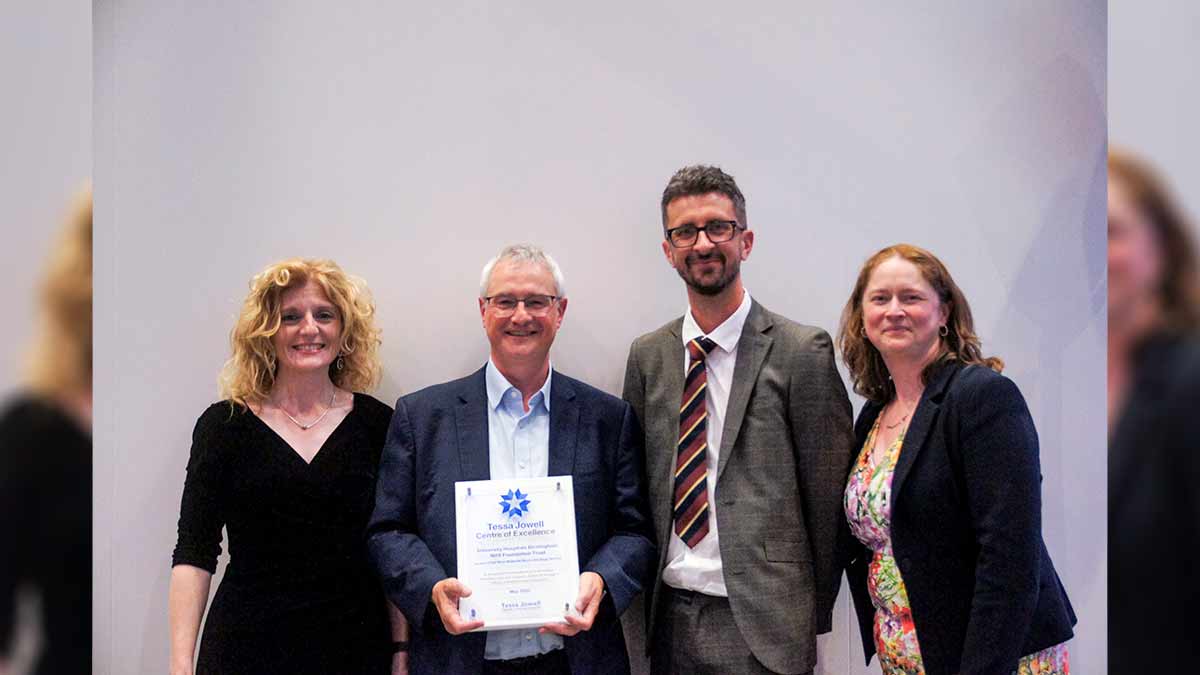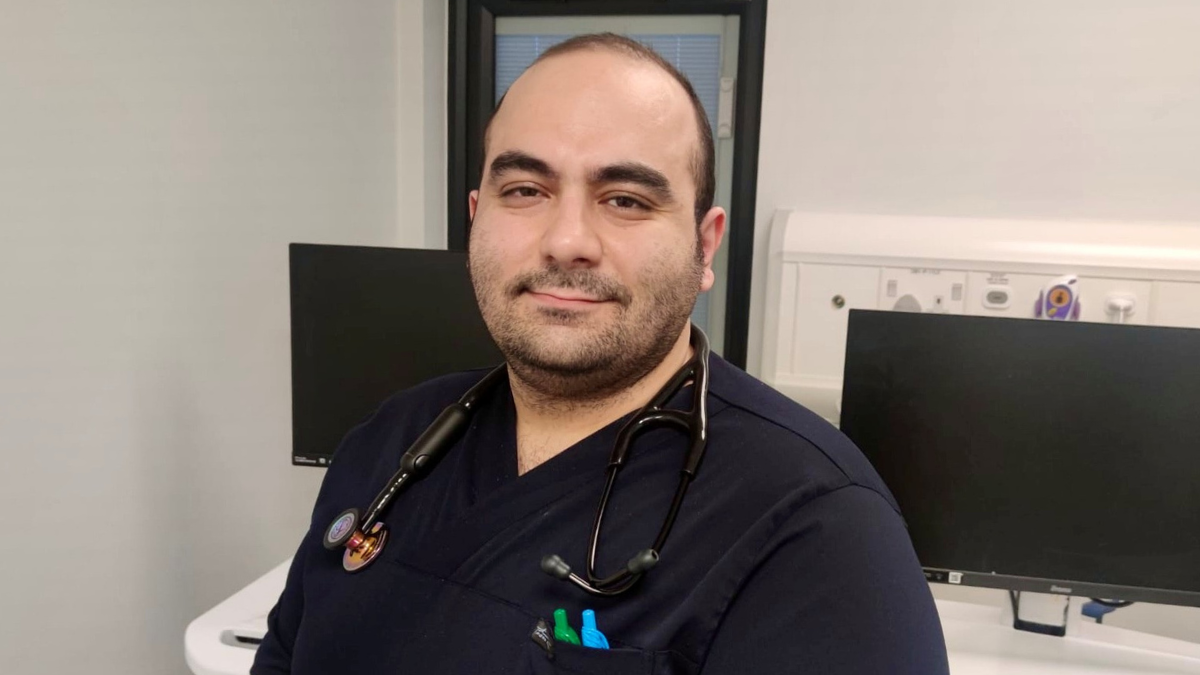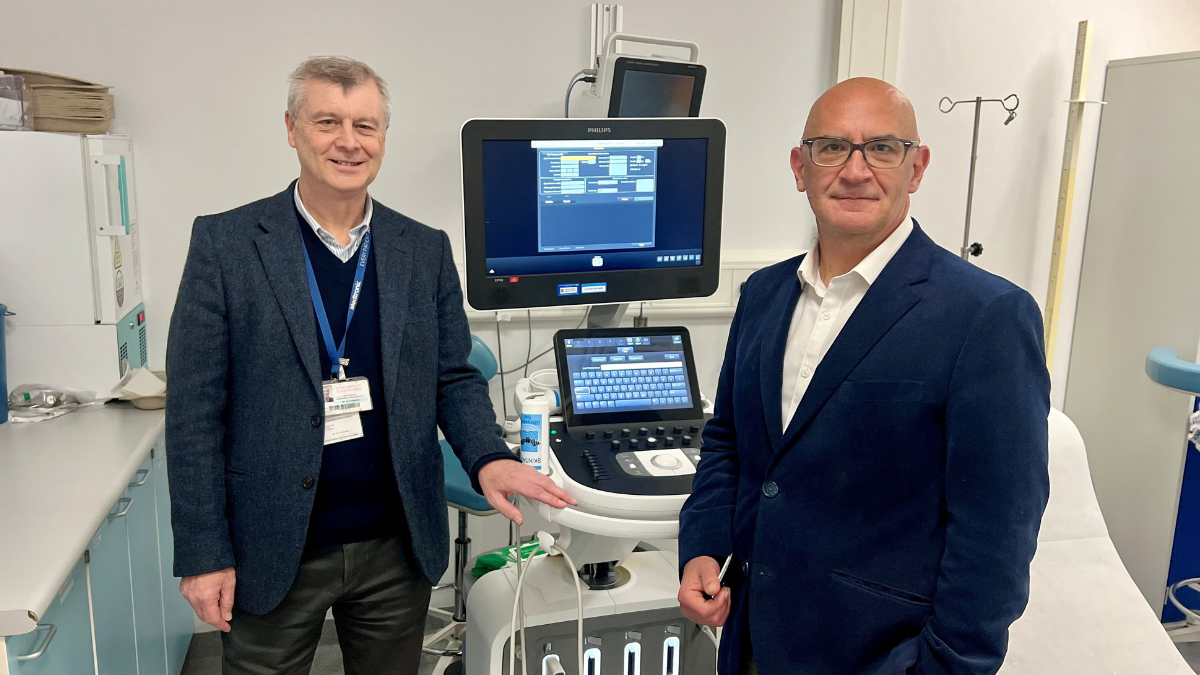Brain cancer excellence recognised in the West Midlands
Published on 19/05/2025

Health care providers and academics across the West Midlands have been recognised for their outstanding treatment, care and research for brain tumours.
Last night, The Tessa Jowell Brain Cancer Mission (TJBCM) announced 14 UK Centre’s of Excellence at a prestigious event at the Francis Crick Institute, attended by NHS teams, charity leaders and MPs.
The Centre of Excellence initiative aims to ensure all UK patients with a brain tumour can access the best standard of treatment, care and research. Brain tumours affect over 12,000 adults in the UK every year and kill more people under the age of 40 than any other cancer.
The new ‘West Midlands Centre of Excellence for Neuro-Oncology’ was awarded to a collaborative effort, which will benefit patients from across the more than 5 million people in the West Midlands.
The Birmingham team, consisting of University Hospitals Birmingham NHS Foundation Trust (UHB) and University of Birmingham, will combine strengths with University Hospitals North Midlands NHS Foundation Trust, in a bid to provide an equitable service to patients across the region.
Centre of Excellence status has been awarded to the partnership for three years, following an outstanding application evidencing patient-centred services with a strong focus on research and innovative clinical practice.
Professor Colin Watts, Professor of Neurosurgery, Chair Birmingham Brain Cancer Programme, University of Birmingham and Honorary Consultant Neurosurgeon at UHB, said: “We are exceptionally proud to be awarded Centre of Excellence status, especially since it recognises our efforts to build strong and long-standing relationships between different NHS Trusts and research institutions in the region.
“We know that to conduct high impact trials and high-quality research we need robust clinical services to build on, and I believe we have that here in the Midlands. We hope that the support of the Tessa Jowell Brain Mission will help us to continue to improve both our services and our research.”
The Centre of Excellence came about as the academic co-leads are also involved with the West Midlands Cancer Alliance. They decided to work together with the West Midlands Cancer Alliance to improve equity of access to services and learn from each other’s various strengths.
Erminia Albanese, Consultant Neurosurgeon, University Hospitals North Midlands NHS Foundation Trust, said: “The group have been working together on genomics research for almost a decade. Formalising our partnership will allow us to work more closely to learn from each’s strengths, specifically considering how to deliver therapy-based services more effectively. For example, the psychological support in place for brain tumour patients at UHNM has been highly commended and we are keen to share best practice more widely to ultimately help our patients live well with cancer.”
All centres were awarded for the world-class treatment, cutting-edge clinical trials, and compassionate, patient-centred care they provide to patients with a brain tumour, following an extensive peer-led review of their services and feedback collected from almost 1,500 patients by The Brain Tumour Charity.
As the only joint application, the West Midlands application met and, in several areas, exceeded the rigorous, expert-led criteria to ensure the highest standards of patient treatment, innovation, and research. It demonstrated notable progress in areas such as holistic support, genomic advancements, and access to clinical trials.
Matthew Metcalfe, Hospital Executive Director of Queen Elizabeth Hospital Birmingham, part of UHB, said: “This recognition as a Centre of Excellence is a testament to the exceptional work being carried out across the West Midlands. By working together, we are ensuring that patients across the region have access to the highest standard of care and treatment. It’s an honour to be part of a partnership that continues to push the boundaries of innovation and patient care, and we look forward to further advancing this work in the years to come.”
The partnership between organisations builds on a long-standing relationship in the region, with a stand-out clinical trials portfolio and state-of-the-art genomic service that submits more brain cancer genomes than anywhere else in the country.
In each centre, the whole team treating brain tumours, from surgeons and nurses through to physiotherapists, palliative care specialists and researchers, will pull together to provide the very best opportunities for patients with brain tumours.


